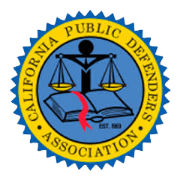
White-collar crime penalties might not leave physical scars, but the penalties can be brutal. I’m talking hefty fines, restitution that drains your bank account, and even years behind bars. It’s not just the rich and powerful who get caught up in this mess either.
If you’re facing charges, you need to know what you’re up against. Picture this scenario haunting every step; it costs more than cash – even the way folks view who you are gets dinged. But don’t panic just yet. With smart insights and a solid game plan by your side, fighting off serious consequences of white-collar crime is totally doable.
Table Of Contents:
- Types of White-Collar Crimes
- White-Collar Crimes Penalties
- Impact of a White-Collar Criminal Conviction
- Defending Against White-Collar Crime Charges
- Conclusion
Types of White-Collar Crimes
White-collar crime isn’t just for the rich and powerful. It’s a broad category that covers a variety of nonviolent, financially motivated offenses.
Money Laundering, Tax Evasion, Securities Fraud, Insider Trading, Identity Theft, Credit Card Fraud, Insurance Fraud
The most common types of white-collar crimes include money laundering, tax evasion, securities fraud, insider trading, identity theft, credit card fraud, and insurance fraud. These crimes typically involve deceit, falsification of documents, and abuse of trust to gain a financial advantage. Money laundering, for example, is the process of disguising the proceeds of illegal activities as legitimate funds. Tax evasion involves deliberately underpaying or failing to pay taxes owed. Securities fraud includes insider trading and other deceptive practices in the stock market. Identity theft and credit card fraud involve stealing personal information for financial gain, while insurance fraud involves making false claims to receive payouts. What all these white-collar crimes have in common is that they’re committed by individuals in positions of power or influence, often in a business or corporate setting. They rely on deception and breach of trust rather than violence. And while they may not grab headlines like violent crimes, the financial damage they cause can be immense.
White-Collar Crimes Penalties
Don’t let the term “white-collar” fool you. The penalties for these crimes are no slap on the wrist.
Fines and Restitution, Probation, Incarceration, Asset Forfeiture
If you’re convicted of a white-collar crime, you could be facing hefty fines, lengthy probation, and even significant prison time. The exact penalties will depend on the specific offense, the scope of the crime, and whether it’s prosecuted at the state or federal level. Fines for white-collar offenses can reach into the millions of dollars. In addition to fines, offenders are often ordered to pay restitution to their victims. Probation is common for first-time offenders, but repeat offenders and those involved in large-scale crimes are likely to face incarceration. Federal sentencing guidelines provide recommended prison sentences based on the severity of the crime. For example, securities fraud can result in up to 20 years in prison, while aggravated identity theft carries a mandatory two-year sentence. In some cases, offenders may also have to forfeit assets obtained through their criminal activities. The bottom line is that white-collar crime doesn’t pay. The financial and personal costs of a conviction can be devastating.
Impact of a White-Collar Criminal Conviction
A white-collar criminal conviction carries consequences that can last a lifetime.
Employment Consequences, Reputation Damage, Higher Education Limitations, Military Career Restrictions
One of the most significant impacts of a white-collar conviction is the damage it can do to your career. Many employers are hesitant to hire individuals with a criminal record, especially for positions involving financial responsibility or access to sensitive information. You may find yourself passed over for promotions or even fired from your current job. The reputational damage can also be severe. White-collar crimes often make headlines, and the stigma of a conviction can follow you long after you’ve served your sentence. Higher education opportunities may be limited, as many colleges and universities conduct criminal background checks. You may also be barred from certain professional licenses and certifications. If you have military aspirations, a white-collar conviction can be a deal-breaker. The military has strict moral character standards, and a felony conviction can disqualify you from service. The personal toll of a white-collar conviction cannot be overstated. The stress, shame, and financial strain can impact your relationships and mental health for years to come.
Defending Against White-Collar Crime Charges
If you’re facing white-collar criminal charges, the stakes are high. You need a strong defense strategy to protect your rights and your future.
Building a Strong Defense Strategy, Plea Bargaining, Challenging Evidence, Statute of Limitations
Building a strong defense starts with hiring an experienced white-collar criminal defense lawyer. Your attorney will carefully review the evidence against you and develop a strategy tailored to your case. This may involve challenging the admissibility of evidence, negotiating a plea bargain, or preparing for trial. In some cases, it may be possible to negotiate a plea deal that reduces the charges or the potential penalties. However, this is not always in your best interest, and it’s crucial to have an attorney who will fight for your rights. If your case goes to trial, your defense lawyer will work to challenge the prosecution’s evidence and present a compelling case for your innocence. They may also explore defenses such as lack of intent, entrapment, or the statute of limitations. The key is to act quickly and seek legal counsel as soon as possible. The earlier you involve a skilled defense attorney, the better your chances of achieving a favorable outcome. Don’t face white-collar charges alone – your future is too important.
White-collar crimes hit hard with heavy fines, prison time, and a lifetime of consequences. Don’t get fooled by their nonviolent nature; the impact is real and lasting.
Conclusion
White-collar crime penalties are no joke. Fines, restitution, probation, and prison time can turn your life upside down. But you’re not powerless in the face of these charges.
Building a strong defense, challenging evidence, and negotiating plea deals can make all the difference. And with the statute of limitations on your side, you might just beat the clock.
The key is to act fast and smart. Get a skilled defense lawyer in your corner, someone who knows the ins and outs of white-collar crime cases. They’ll help you navigate the legal maze and fight for the best possible outcome.
Remember, a white-collar criminal conviction isn’t the end of the road. It’s a bump in the journey, one you can overcome with the right tools and mindset. So don’t let the fear of penalties paralyze you. Take control of your case and your future, one step at a time.




